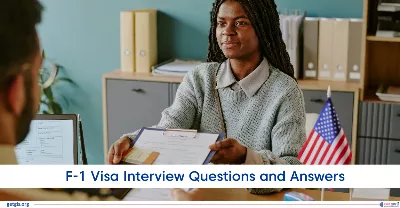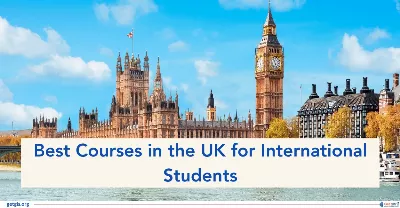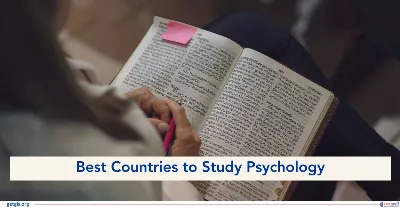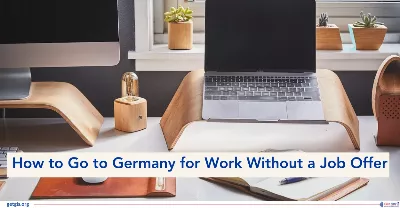F1 Visa Interview Questions and Answers for 2026: A Complete Guide
Updated On
-
Copy link
Concerned about your F-1 visa interview? Scroll down for a comprehensive guide on F-1 visa interview questions and answers, required documents, common mistakes to avoid, and more.
Limited-time offer : Access a free 10-Day IELTS study plan curated for you

Table of Contents
- How to Prepare for Your F1 Visa Interview?
- U.S. F1 Visa Interview Guidelines
- Commonly Asked US F1 Student Visa Interview Questions and Answers
- Top F1 Visa Interview Questions (with Model Answers)
- Dress Code for F1 Visa Interview (New H2)
- Common Mistakes in Your F1 Visa Interview & How to Avoid Them
- Unlocking Doors to Education: F1 Visa Interview Preparation with GetGIS
The F-1 Visa is a non-immigrant visa issued by the United States government to international students who want to pursue full-time studies at an accredited U.S. institution.
As part of the F-1 Visa application process, international students must participate in a visa interview. During this interview, they will be asked specific questions about their study plans and living arrangements in the U.S., among other topics.
Preparing for your F-1 Visa interview involves more than just knowing the right answers and avoiding common mistakes. In this guide, we have jotted down some common F1 Visa interview questions and answers, errors that candidates make during their interviews, along with practical tips to help you avoid them. By understanding these common pitfalls and learning how to navigate them, you can boost your confidence and improve your chances of obtaining a successful visa outcome.
How to Prepare for Your F1 Visa Interview?

As mentioned, preparing for an F1 visa interview can be a crucial step in your journey to study in the United States. To help you succeed, here are some essential tips to ensure a smooth and successful interview experience.
- Be prepared with all required documents
- Answer questions confidently and truthfully
- Understand your program and university
- Explain your intent to return to your home country
- Dress professionally and be punctual
- Stay calm and polite during the interview
- Practice with mock interviews if possible
- Be ready to discuss your finances
- Review common interview questions
- Bring a positive attitude and a smile
U.S. F1 Visa Interview Guidelines
Here are essential guidelines that can significantly improve your confidence and impression during the interview. Key aspects include punctuality, professionalism, honesty, and effective communication.
|
What to Do |
What Not to Do |
|
Be Punctual: Arrive 15-20 minutes early for your interview to allow time for security and check-in. |
Don’t Be Late: Avoid arriving at the last minute, which can cause stress or missed appointments. |
|
Dress Professionally: Choose formal or business-casual attire to make a good impression. |
Don’t Dress Casually: Avoid casual or inappropriate clothing that might seem unprofessional. |
|
Be Honest and Clear: Answer all questions truthfully and clearly. |
Don’t Lie: Never provide false information; consular officers can detect inconsistencies. |
|
Maintain Eye Contact: Show confidence by making appropriate eye contact with the officer during answers. |
Don’t Avoid Eye Contact: Avoiding eye contact may be seen as evasive or dishonest. |
|
Bring All Required Documents: Have your passport, DS-160 confirmation, I-20, financial proof, and other documents neatly organized. |
Don’t Forget Documents: Missing important documents can delay or cause visa denial. |
|
Stay Calm and Composed: Take a deep breath, stay relaxed, and speak clearly even if you feel nervous. |
Don’t Be Overly Nervous or Anxious: Excessive nervousness can lead to mistakes or unclear answers. |
|
Be Concise: Provide brief but complete answers. |
Don’t Over-Explain: Stick to the point and avoid unnecessary details unless asked. |
|
Listen Carefully: Pay attention to questions and respond thoughtfully without interrupting. |
Don’t Interrupt the Officer: Let the officer finish the question before responding. |
|
Maintain Politeness and Respect: Stay polite even if denied or faced with difficult questions. |
Don’t Argue: Arguing can harm your chances and appear disrespectful. |
|
Be Prepared and Organized: Practice your answers and bring any supporting evidence clearly arranged. |
Don’t Bring Extra People: Only the applicant should attend unless allowed otherwise. |
|
Show Confidence: A confident posture and demeanor indicate readiness. |
Don’t Rush Through Answers: Take time to think and give clear answers. |
|
Follow Security Guidelines: Avoid carrying phones, electronics, or prohibited items to the embassy or consulate. |
Don’t Carry Prohibited Items: Bringing these can lead to delays or denied entry. |
Also Read: Everything You Need to Know About Intakes in USA
Commonly Asked US F1 Student Visa Interview Questions and Answers
US F-1 visa interview queries aim to understand the purpose of your US travel and evaluate your authenticity as a student. Expect personalized questions about your motivations for pursuing higher education in the US. Below are some of the extremely useful F1 visa interview questions and answers
Prepare yourself to answer the student visa interview questions and answers that typically cover five main areas as given below
1. Commonly Asked Questions in Study Objectives
A. What are your study objectives in the United States?
Sample Answer: My primary goal is to pursue a Master's degree in Computer Science at [University Name] to gain a deeper understanding of advanced technologies and contribute to innovation in my home country. I believe this program will equip me with the necessary skills and knowledge to achieve this.
B. What specific field of study are you pursuing in the United States, and why have you chosen it?
Sample Answer: I am pursuing a degree in [Your Chosen Field] because it aligns with my long-term career aspirations. This field offers exciting opportunities for research and innovation, and I believe it will empower me to contribute to [mention an area or challenge relevant to your home country].
C. How do you envision your education in the United States benefiting your future career and your home country?
Sample Answer: Studying in the United States will expose me to cutting-edge research, diverse perspectives, and advanced technologies. I plan to bring this knowledge and experience back to my home country and apply it to [mention a specific project, industry, or area] to drive growth and development.
2. Choice of Institution
A. Why did you choose [University Name] for your studies?
Sample Answer: I selected [University Name] because of its strong reputation in my field of study, its research opportunities, and the availability of scholarships for international students. Additionally, it's located in a region known for tech innovation, which aligns with my career goals.
B. What research have you conducted about this institution, its campus, and its programs?
Sample Answer: I conducted extensive research, including reviewing the institution's website, speaking with current students and alumni, and attending virtual information sessions. I also read about [mention specific programs or projects] that this institution is known for, which further solidified my choice.
C. Do you have any connections or contacts at this institution, such as professors or alumni, who influenced your decision to apply here?
Sample Answer: While I don't have direct connections, I was impressed by the institution's network of [mention any notable professors or alumni in your field], who have made significant contributions in [mention a specific area]. Knowing that I could learn from and potentially collaborate with such experts was a major factor in my decision.
Explore: Everything You Need to Know About Intakes in USA
3. Academic Qualifications
A. Can you tell me about your academic background and qualifications?
Sample Answer: I completed my Bachelor's degree in Electrical Engineering from [Your Home University] with honors. My academic record reflects my dedication to my studies, and I'm confident in my ability to excel in the challenging curriculum at [University Name]
B. How do you plan to adapt to the academic challenges you may face in the United States, considering differences in the educational system?
Sample Answer: I'm aware that the academic environment in the United States may differ from what I'm accustomed to. However, I am prepared to adapt by utilizing available academic resources, seeking help from professors and peers, and dedicating additional time to my studies. I'm confident in my ability to meet these challenges successfully.
C. Are there any specific academic achievements or honors you would like to highlight that demonstrate your dedication to your studies?
Sample Answer: During my academic journey, I received [mention any specific academic achievements or honors] that reflect my commitment to excellence in my studies. These achievements have motivated me to continue pursuing higher education and furthering my academic and career goals.
4. Financial Standing
A. How do you plan to finance your education and living expenses in the US?
Sample Answer: I have secured a scholarship that covers a significant portion of my tuition fees, and I also have a sponsor who will support me financially. I've carefully budgeted for my living expenses, and I'm confident that I have the necessary funds to cover my entire stay in the United States.
B. Can you provide details about your sponsor or source of funding for your studies in the United States?
Sample Answer: My sponsor is [mention sponsor's name], who is my [mention relationship, such as a parent or guardian]. They have committed to providing financial support for my education and living expenses during my studies in the United States. I have provided all necessary financial documents to demonstrate this commitment.
C. Have you considered the cost of education in the United States, and do you have a financial plan to cover the entire duration of your program?
Sample Answer: Yes, I have carefully considered the cost of education and living in the United States. I have prepared a comprehensive financial plan that covers both tuition fees and living expenses for the entire duration of my program. I am confident that I have the necessary funds to support my stay.
5. Post-Graduation Intentions
A. What are your plans after completing your studies in the US?
Sample Answer: Upon completing my Master's degree, my plan is to return to my home country. I aim to apply the knowledge and skills I've acquired in the US to contribute to technological advancements and research projects, which will ultimately benefit my nation's development.
B. Have you considered opportunities for collaboration between institutions in the United States and organizations in your home country?
Sample Answer: Certainly, I am actively exploring opportunities for collaboration between institutions in the United States and organizations in my home country. I believe that such collaborations can facilitate knowledge exchange and contribute to joint research projects, fostering international partnerships that benefit both nations.
C. Do you have any plans for further education or research after completing your initial program?
Sample Answer: After completing my initial program, I plan to gain practical work experience in my field to apply the knowledge I've acquired. While I am open to further education or research opportunities in the future, my immediate focus is on gaining hands-on experience and contributing to real-world projects in my home country.
Also Read: Scholarship for Indian Students in USA: All You Need to Know
Top F1 Visa Interview Questions (with Model Answers)
-
Questions about Your Study Plans
These questions are to understand your motivation and clarity regarding your academic objectives in the U.S.
-
What are your study objectives in the United States?
Sample Answer: My primary goal is to pursue a Master's degree in Computer Science at [University Name] to gain a deeper understanding of advanced technologies and contribute to innovation in my home country. I believe this program will equip me with the necessary skills and knowledge to achieve this.
-
What specific field of study are you pursuing in the United States, and why have you chosen it?
Sample Answer: I am pursuing a degree in [Your Chosen Field] because it aligns with my long-term career aspirations. This field offers exciting opportunities for research and innovation, and I believe it will empower me to contribute to [mention an area or challenge relevant to your home country].
-
How do you envision your education in the United States benefiting your future career and your home country?
Sample Answer: Studying in the United States will expose me to cutting-edge research, diverse perspectives, and advanced technologies. I plan to bring this knowledge and experience back to my home country and apply it to [mention a specific project, industry, or area] to drive growth and development.
-
F-1 Visa Interview Questions to Verify Your Background
These questions focus on your previous travel and family ties to gauge your credibility and intent.
-
Have you ever visited the U.S. before? If yes, under which visa?
Sample Answer: Yes, I have previously visited the United States on a B2 tourist visa in 2023 to attend a family event and explore the country. My stay was brief, and I strictly adhered to all legal requirements during my visit. This experience gave me a positive impression of U.S. culture and strengthened my interest in pursuing my studies here.
-
Do you have any relatives or close family members currently in the U.S.?
Sample Answer: No, I have not yet had the opportunity to visit the United States. I am looking forward to my first visit as a student and believe it will provide invaluable academic and cultural experiences.
-
Have you ever been involved in any legal issues or had a visa denied?
Sample Answer: My cousin is currently studying at a university in the United States, but my immediate family resides in my home country. While I do have some distant relatives in the U.S., my primary family, professional, and personal ties are strongly rooted at home. I intend to return upon completing my studies to contribute to my country's development.
-
Have you ever been involved in any legal issues or had a visa denied?
Sample Answer: No, I have never been involved in any legal issues or faced any visa denial. My travel and immigration record is clean. I have always complied with the laws and regulations of every country I visited and have never overstayed or violated any visa terms
Sample Answer (If denied): Yes, my tourist visa application was denied six months ago due to insufficient documentation showing my ties to my home country. I have since addressed those concerns by securing a clear academic path and strong professional plans to return home after my studies.
-
F-1 Interview Questions For University Selection
These questions check how well you know your chosen institution and its relevance to your goals.
-
Why did you choose [University Name] for your studies?
Sample Answer: I selected [University Name] because of its strong reputation in my field of study, its research opportunities, and the availability of scholarships for international students. Additionally, it's located in a region known for tech innovation, which aligns with my career goals.
-
What research have you conducted about this institution, its campus, and its programs?
Sample Answer: I conducted extensive research, including reviewing the institution's website, speaking with current students and alumni, and attending virtual information sessions. I also read about [mention specific programs or projects] that this institution is known for, which further solidified my choice.
-
Do you have any connections or contacts at this institution, such as professors or alumni, who influenced your decision to apply here?
Sample Answer: While I don't have direct connections, I was impressed by the institution's network of [mention any notable professors or alumni in your field], who have made significant contributions in [mention a specific area]. Knowing that I could learn from and potentially collaborate with such experts was a major factor in my decision.
-
F-1 Interview For Proving Your Academic Capability
These questions help in finding out whether you have the academic background and skills to succeed in your US program:
-
Can you tell me about your academic background and qualifications?
Sample Answer: I completed my Bachelor's degree in Electrical Engineering from [Your Home University] with honors. My academic record reflects my dedication to my studies, and I'm confident in my ability to excel in the challenging curriculum at [University Name]
-
How do you plan to adapt to the academic challenges you may face in the United States, considering differences in the educational system?
Sample Answer: I'm aware that the academic environment in the United States may differ from what I'm accustomed to. However, I am prepared to adapt by utilizing available academic resources, seeking help from professors and peers, and dedicating additional time to my studies. I'm confident in my ability to meet these challenges successfully.
-
Are there any specific academic achievements or honors you would like to highlight that demonstrate your dedication to your studies?
Sample Answer: During my academic journey, I received [mention any specific academic achievements or honors] that reflect my commitment to excellence in my studies. These achievements have motivated me to continue pursuing higher education and furthering my academic and career goals.
-
F-1 Interview Questions to Check Your Financial Status
These questions verify your ability to afford your education and living expenses in the US without undue hardship:
-
How do you plan to finance your education and living expenses in the US?
Sample Answer: I have secured a scholarship that covers a significant portion of my tuition fees, and I also have a sponsor who will support me financially. I've carefully budgeted for my living expenses, and I'm confident that I have the necessary funds to cover my entire stay in the United States.
-
Can you provide details about your sponsor or source of funding for your studies in the United States?
Sample Answer: My sponsor is [mention sponsor's name], who is my [mention relationship, such as a parent or guardian]. They have committed to providing financial support for my education and living expenses during my studies in the United States. I have provided all necessary financial documents to demonstrate this commitment.
-
Have you considered the cost of education in the United States, and do you have a financial plan to cover the entire duration of your program?
Sample Answer: Yes, I have carefully considered the cost of education and living in the United States. I have prepared a comprehensive financial plan that covers both tuition fees and living expenses for the entire duration of my program. I am confident that I have the necessary funds to support my stay.
-
F-1 Interview Questions to Discuss Your Post-Graduation Plan
These questions focuses on confirming your intentions regarding your future after completion of studies, especially your ties to your home country.
-
What are your plans after completing your studies in the US?
Sample Answer: Upon completing my Master's degree, my plan is to return to my home country. I aim to apply the knowledge and skills I've acquired in the US to contribute to technological advancements and research projects, which will ultimately benefit my nation's development.
-
Have you considered opportunities for collaboration between institutions in the United States and organizations in your home country?
Sample Answer: Certainly, I am actively exploring opportunities for collaboration between institutions in the United States and organizations in my home country. I believe that such collaborations can facilitate knowledge exchange and contribute to joint research projects, fostering international partnerships that benefit both nations.
-
Do you have any plans for further education or research after completing your initial program?
Sample Answer: After completing my initial program, I plan to gain practical work experience in my field to apply the knowledge I've acquired. While I am open to further education or research opportunities in the future, my immediate focus is on gaining hands-on experience and contributing to real-world projects in my home country.
Also Read: Scholarship for Indian Students in USA: All You Need to Know
Dress Code for F1 Visa Interview (New H2)
Get dressed up with the right attire for your F1 visa interview to create a strong first impression and convey professionalism and seriousness about your study plans. Wearing clean, neat, and appropriate clothing will help boost your confidence and respect the formal nature of the interview.
Here is the dress code for your F-1 visa interview. Key terms to remember are business casual, professional appearance, and minimal accessories.
|
Category |
Men |
Women |
|
Top |
Collared shirt (e.g., button-down) in solid or subtle pattern; long sleeves preferred |
Blouse or shirt that is simple, professional, and modest (no low necklines or sleeveless) |
|
Bottom |
Dress pants or chinos in neutral colors (black, navy, grey, khaki) |
Dress pants or a conservative skirt (avoid short or tight clothing) |
|
Shoes |
Formal, closed-toe, polished dress shoes |
Closed-toe flats or low heels (avoid high heels or sandals) |
|
Accessories |
Keep it simple (watch, belt); well-groomed hair and beard trimmed |
Simple jewelry, minimal makeup, and avoid excessive perfume |
|
Avoid |
Jeans, t-shirts, sneakers, flip-flops, overly casual attire |
Leggings, shorts, flashy or overly casual clothing |
Common Mistakes in Your F1 Visa Interview & How to Avoid Them

During the F1 student visa interview process, it's important to avoid the following ‘don'ts’ to increase your chances of a successful interview:
- Be honest and accurate in your responses. Providing false information can lead to visa rejection and future immigration problems.
- If you've previously visited the U.S. on a different visa, ensure you didn't overstay your authorized period, as this may affect your eligibility for an F1 visa.
- Lack of preparation can raise doubts about your intentions. Be ready to discuss your academic plans, financial support, and ties to your home country.
- Stick to the required documents. Avoid carrying irrelevant paperwork or providing unsolicited information.
- Practice answering potential questions beforehand to be confident and articulate during the interview. Nervousness can create suspicion.
- Avoid discussing plans to work or immigrate during the interview. Focus on your academic intentions and return home after your studies.
- Stay polite and respectful even if you disagree with an interviewer's questions. Being confrontational can harm your chances.
- Typically, only the applicant is allowed in the interview area. Bringing family or friends can be seen as a lack of independence.
- Ensure your financial documents are genuine and accurately represent your funding. False financial statements can lead to visa denial.
- While confidence is good, don't assume your visa will be approved. Be respectful and prepared for any outcome.
Also Read: Cost of Study in USA for Indian Students in 2026
Unlocking Doors to Education: F1 Visa Interview Preparation with GetGIS
In conclusion, accepting your F1 visa interview is a crucial step toward achieving your dream of studying in the United States. By thoroughly preparing for commonly asked questions and providing truthful responses, you can increase your chances of a successful outcome.
Remember, your journey to study abroad with GetGIS is not just about obtaining a visa but embarking on an educational adventure that will shape your future. With GetGIS's expertise in study abroad services, SOP services, interview preparation, and more, you can confidently navigate the visa application process and set the stage for an enriching and transformative academic experience in the USA. Schedule a Free Consultation with our experts today!
- Tags
- Study Abroad
Limited-time offer : Access a free 10-Day IELTS study plan curated for you

Frequently Asked Questions
What are the commonly asked F1 visa interview questions and answers?
Do F1 visas get rejected?
What is the success rate of an F1 visa?
What is the maximum time for an F1 visa?
How many times can I attempt the F1 visa?





